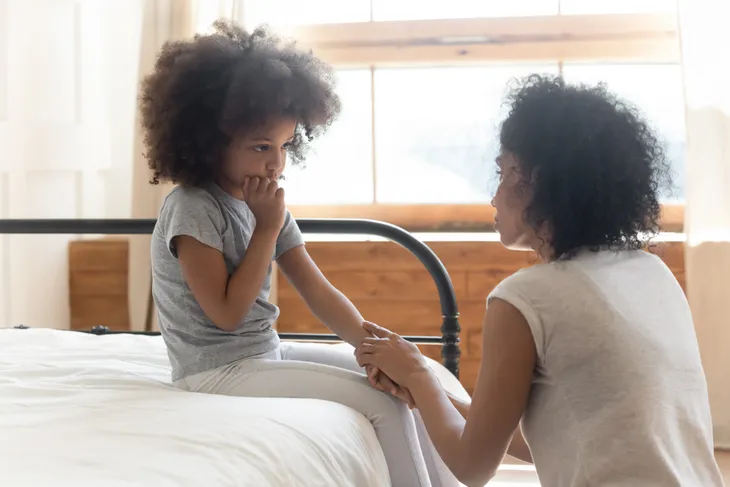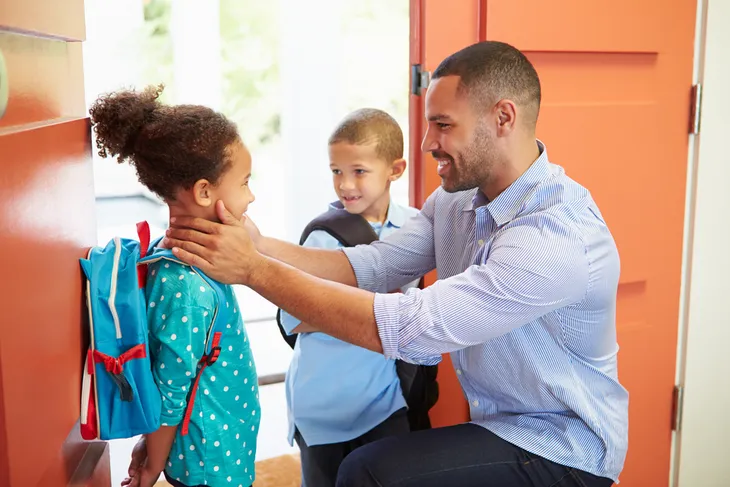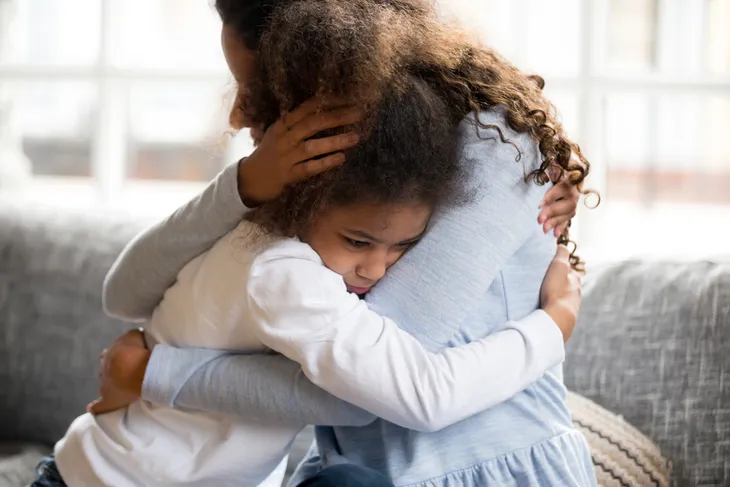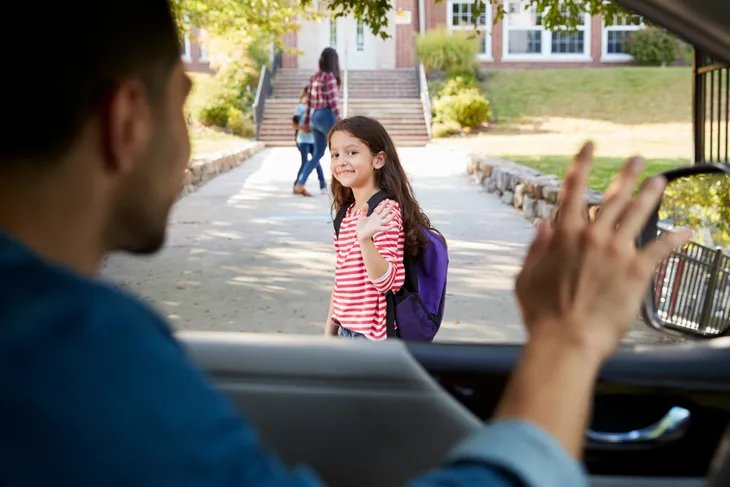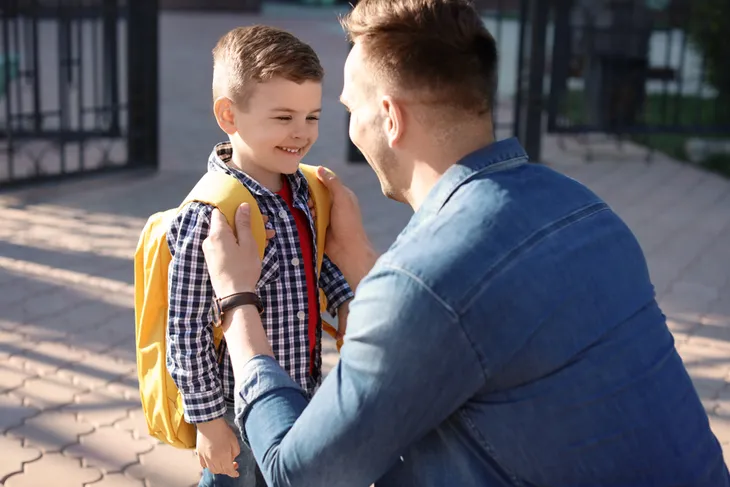Dropping off your child to daycare, school, or even camp can be a somewhat traumatic experience for both you and your child. If their routine has suddenly been changed, it could make them clingier, leading to feelings of guilt and abandonment.
While most children get over the anxiety of being away from their parents, AnxietyBC explains that some children will continue to feel the effects even into their second school year. About 4-percent of children will feel separation anxiety during any given school year, according to the source. Here are 6 ways to ease the transition and the anxiety that comes with it…
Teach Your Child about Anxiety
AnxietyBC also notes that while you might know the feelings of anxiety well, your child might not, and think there’s something wrong with them. Letting them know they’re not alone—figuratively and literally—can help them accept the feelings.
Knowing that there are other children who have a hard time coping without their parents around can help them understand what the negative feelings are caused by, and help them on the road to more independence.
Prepare Them for Departure
Parents magazine said instead of downplaying the fact you’re leaving for a trip or even for a day at work, you can ease the anxiety of your child by advising them ahead of time you won’t be with them on a certain day.
The magazine said while it’s tempting to skip an explanation of why you’re disappearing, telling them where you’ll be in a positive tone will help put them at ease. If you’re leaving them with a caregiver other than your partner, you can build their excitement by saying something like, “You and (caregiver) are going to have so much fun!”
Don’t Drag Out Goodbyes
While it’s important to say goodbye before leaving (vanishing into thin air will not put your child at ease), you shouldn’t prolong your goodbye, explains BabyCenter.
Your baby can tell if you’re upset, so try to hold it together while you’re giving your toddler a hug or kiss goodbye. If you seem upset, it’s possible that will make your child upset. If possible, try to keep your emotions in check until you’re out of sight, said BabyCenter.
Practice Being Apart
The more situations you can have apart from your child, the better they might be able to cope with the situation. However, that doesn’t mean you have to book a bunch of trips to ensure you have time away – it can start by just being in the next room for a while, while he or she works through it.
KidsHealth.org adds that you should introduce new people gradually. For example, if you have a caregiver lined up, invite them over while you’re still there to show your child it’s safe. You can leave your child with the caregiver for shorter periods of time at first to help them adjust.
Set a Time to Return
If your child is old enough to understand the concept of hours and night and day, then they will also have a sense of how long you’ve been away. To ease this, give them a realistic time that you’ll return to give them something to look forward to, and build their trust.
You can be quite specific with the time you’ll be back, but don’t try to make it sooner than possible if you don’t think you can make it back at that time. You can even say, “I’ll see you soon after lunch,” or something to that effect, instead of saying, “I’ll be back at 12:30 p.m.” However, don’t take that as an invitation to delay your return either.
Take a Deep Breath
This one is for the parents—because how you deal with separation from your child can ultimately dictate how your child copes with it (even until their own adulthood). There are ways to ease your own separation anxiety symptoms, according to Aha! Parenting.
Some tips from the online source include remembering to have faith in your child, and that they’ll be safe in another’s care. You can also take more time to get to know teachers and caregivers better, as well as making a list of things you’d like to do with junior in your spare time and giving yourself some time to regroup—the source suggests a lunch out or even a long bath.

